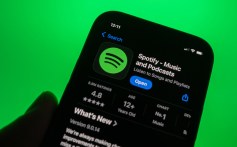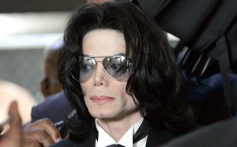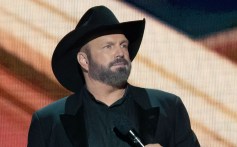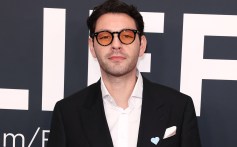Legal News
Page: 5
Trending on Billboard BERLIN — The first serious European court decision on AI and music is in – and rightsholders won. On Nov. 11, the Munich Regional Court ruled that OpenAI’s ChatGPT software infringed copyrights to compositions represented by GEMA, the German collective management organization. The judge ordered OpenAI to pay damages but did not […]
Trending on Billboard
Since subscribing to Spotify in 2023, Genevieve Capolongo says she’s mostly listened to “lesser-known artists” like Próxima Parada, Julia Cooper and Brusco. But she says the streamer’s recommendation tools keep serving her “mainstream, major-label tracks” by Drake, Zach Bryan and Justin Bieber.
According to her lawyers, that’s because Spotify was paid to do so.
Related
In a lawsuit filed last week, Capolongo claims the streamer’s Discovery Mode and editorial playlists amount to a “modern form of payola,” allowing labels to secretly boost their tracks with a “deceptive pay-for-play” program. She says she wouldn’t have subscribed if she knew that Spotify’s recommendations had been sold “to the highest bidder.”
The case is sometimes light on specifics, like citing unnamed “industry insiders” about alleged illicit payments or “disproportionate” rates of major-label music. Spotify, for its part, called the lawsuit “nonsense” and said it was “riddled with misunderstandings and inaccuracies.”
But it targets a program that has raised eyebrows for years — and comes at a time when Spotify has faced multiple accusations about manipulation on the platform. For more, go read our full story here.
You’re reading The Legal Beat, a weekly newsletter about music law from Billboard Pro, offering you a one-stop cheat sheet of big new cases, important rulings and all the fun stuff in between. To get the newsletter in your inbox every Tuesday, go subscribe here.
Other top stories this week…
DRAKE’S APPEAL – As Drake asks an appeals court to revive his lawsuit over Kendrick Lamar’s “Not Like Us,” I asked legal experts what his lawyers might argue — and whether it’ll work.
TAYLOR V. TRUMP? – Taylor Swift fans want her to sue the Trump administration after it used “The Fate of Ophelia” in a TikTok video. She probably could, but almost certainly won’t.
DISJOINT VENTURE – 10K Projects, the Warner-owned label founded by Elliot Grainge, is facing a lawsuit claiming it owes millions to Taz Taylor’s Internet Money Records under a joint venture.
FAST & FREE SONGS – How did New York City Mayor-elect Zohran Mamdani get clearance to use Bob Dylan’s iconic anthem “The Times They Are A-Changin’” in a campaign ad? It turns out he didn’t.
MJ LITIGATION – Michael Jackson’s estate is locked in a legal battle over abuse allegations from the Cascio siblings, who spent much of their childhoods with the King of Pop.
GORDIAN SLIPKNOT – Slipknot’s lawsuit against a group that has owned slipknot.com for decades has hit an unexpected snag: The shadowy entity has hired a lawyer and is fighting back.
ATLANTA ARREST – Rod Wave was arrested in Atlanta on weapon and drug charges. His lawyer — star defense attorney Drew Findling — says Wave was “unjustly profiled and unlawfully arrested.”
NAME REVEAL? – A “Jane Roe” woman who accused Garth Brooks of sexual assault is refusing to concede defeat in her fight to remain pseudonymous, filing an appeal to avoid disclosing her real name.
NOVEMBER LITIGATION – An ex-manager of Guns N’ Roses is suing the band, claiming it has unfairly blocked the release of his memoir by threatening to sue him and his publisher over a decades-old NDA.
Trending on Billboard A federal judge rejected a lawsuit claiming the Rock & Roll Hall of Fame broke the law by using a copyrighted photo of Eddie Van Halen in a museum exhibit. Dismissing a case filed by rock photographer Neil Zlozower, Judge Christopher A. Boyko said the Rock Hall made legal “fair use” of […]
Trending on Billboard
For years, the Cascio family was one of Michael Jackson’s fiercest defenders against ugly pedophilia claims. The five siblings from New Jersey, whom Jackson considered a “second family” and who spent much of their childhoods with the King of Pop, publicly denied that he was ever inappropriate with them.
That all changed in 2019, when the HBO documentary Leaving Neverland amplified child sex abuse claims against Jackson from two men in disturbing detail. As the Cascio siblings tell it, the film led them to reflect and reveal to each other for the first time that they had all been abused by Jackson as children across “hundreds of instances.” The estate of Jackson, who died in 2009, says the Cascios fabricated these claims and were seeking to cash in on the cultural moment.
Related
Whether the Cascios’ allegations were true or not, one thing is for sure: The siblings signed a multimillion-dollar settlement, including a strict nondisclosure agreement, with the Jackson estate in late 2019. Now, the validity of this settlement is the subject of a bitter legal battle in court.
The Jackson estate alleged in a court petition this summer that the Cascios violated the settlement with an “extortionate” threat that they would go public with the claims unless they were paid an additional $213 million. Last month, the Cascio siblings responded by asking a judge to declare the settlement void.
The Cascios — Frank, Aldo, Marie-Nicole, Edward and Dominic — said the estate “exploited their confusion and vulnerability” upon coming to terms with the alleged abuse by pressuring them to quickly sign a deal they didn’t understand.
According to the Cascios’ Oct. 6 court filing, the siblings didn’t have their own lawyer and were told by the Jackson estate that the deal “would not get done” if they hired counsel and took time to review the papers. They also said the estate misrepresented the nature of the settlement, telling them it was a “life rights” agreement.
Related
“Exploiting the same patterns of trust, fear and conditioned loyalty that Michael Jackson had cultivated for decades, the estate manipulated respondents’ emotional state to extract their silence through coercive and deceptive means,” wrote the Cascios’ attorney Mark Geragos. “The rushed process was intended to, and did, in fact, take advantage of the Cascio siblings’ shock and trauma upon realizing this had happened to all of them.”
The estate, meanwhile, says the Cascios were not pressured to sign anything. To the contrary, the estate claims in court filings that the Cascio siblings were the ones who demanded a settlement for their “specious allegations” — and that the estate reluctantly paid to avoid public pain and harm to Jackson’s children.
“Frank inaccurately depicts the negotiations leading up to the execution of the Agreement as one-sided strong-arming,” wrote the estate’s attorney, Jonathan Steinsapir, on Oct. 30, referring to Frank Cascio.
The truth, argues the estate, is that the settlement was “extensively negotiated” and “voluntarily executed” by the Cascio siblings. It is now urging a judge to enforce all provisions of the agreement, including a mandatory arbitration clause.
Related
A court hearing on the dispute is scheduled for Dec. 3 in Los Angeles County. Geragos and a rep for the Jackson estate both declined to comment on the matter on Friday (Nov. 7).
Jackson was never convicted or held legally liable for any accusation of child sex abuse during his lifetime; he settled a civil claim in 1994 without admitting any wrongdoing, and he was acquitted at a criminal trial in 2005. But such allegations have continued to dog his legacy, most notably when Leaving Neverland hit screens in 2019.
The Jackson estate called Leaving Neverland a “one-sided hit job” and sued HBO, leading the documentary to be removed from the streaming platform. Yet the subjects of Leaving Neverland, Wade Robson and James Safechuck, are continuing to pursue civil sexual assault claims against the estate.
Meanwhile, the Jackson estate has been extraordinarily successful at monetizing the singer’s legacy. Jackson died with $500 million in debt, but the estate has since generated more than $3 billion with catalog deals and new live shows exploiting the King of Pop’s intellectual property.
The estate’s latest endeavor is Michael, a long-developed biopic tracing Jackson’s rise to stardom. After years of setbacks and delays, Michael finally has a release date of April 24, 2026.
The movie’s first teaser trailer dropped on Thursday (Nov. 6) with scenes of Jackson’s real-life nephew, Jaafar Jackson, recording and performing Michael’s record-smashing 1982 album Thriller. The teaser does not allude to any of the abuse claims against Jackson.
Trending on Billboard
A woman who has accused Garth Brooks of sexual assault is refusing to concede defeat in her fight to remain anonymous.
The allegations, which Brooks vehemently denies, were raised by the star’s former hairstylist, identified only as Jane Roe in court filings. But the country star won a ruling in September that she must use her real name as the litigation moves ahead.
Related
In a notice filed last month, Roe said she would ask a federal appeals court to reverse that ruling, saying that she was “appealing those portions of the order pertaining to her motions to maintain the confidentiality of her name and proceed using a pseudonym.”
A spokesperson for Brooks did not immediately return a request for comment on the case or the new appeal.
The legal battle kicked off last year, when Brooks filed a preemptive lawsuit under the name John Doe, claiming he was facing an “ongoing attempted extortion” by a woman falsely accusing him of sexual assault. Weeks later, Roe filed her own case in Los Angeles, accusing Brooks of assaulting her while she worked for him as a hairstylist.
Brooks has vehemently denied the allegations, saying in a statement that he had been threatened that the woman’s “lies” would be released to the public unless he wrote “a check for many millions of dollars.”
Related
Since last year, much of the case has been shrouded in mystery because the entire court docket has been kept under seal, an unusual step in any federal lawsuit. The judge overseeing the case took that step after Brooks filed case documents last fall in which he publicly disclosed the accuser’s name.
That disclosure sparked outrage from Roe’s attorney, who vowed to re-hide her name and seek penalties against Brooks: “Out of spite and to punish, he publicly named a rape victim,” said her attorney, Douglas Wigdor. “With no legal justification, Brooks outed her because he thinks the laws don’t apply to him.”
In later court filings, attorneys for Brooks pushed back on that, arguing that the accuser “already agreed to use her name” — citing earlier court filings in which her attorneys argued Brooks must use his.
In September, Judge Henry T. Wingate denied Roe’s motion to remain under the pseudonym, though his reasoning is unclear because the ruling remains under seal, like the rest of the docket. Her team then filed a motion for an interlocutory, or immediate, appeal of that ruling.
Related
Though the appellate case is underway, the accuser has not yet filed formal arguments. In a statement to Billboard, another of her attorneys, Jeanne M. Christensen, said they could not speak about the specifics of the appeal because of the judge’s sealing orders.
“The Mississippi action filed by Garth Brooks in a desperate effort to preemptively silence our client is currently under seal, and therefore, we cannot comment on the appeal,” said Christensen, a partner at Wigdor’s firm. “We continue to applaud our client’s courage in coming forward with her allegations of sexual assault against Brooks and are confident that he will be held accountable for his actions.”
Trending on Billboard
Drake is appealing after a judge dismissed his defamation lawsuit against Universal Music Group (UMG) over Kendrick Lamar’s diss track “Not Like Us” — and some legal experts think it could be a closer case than one might expect.
Related
The appeal, filed last week, will seek to revive Drake’s case, which claimed that UMG defamed him by releasing lyrics that called him a “certified pedophile.” A judge tossed the case out last month, ruling that listeners would think Lamar was just lobbing hyperbolic opinions, not hard facts.
For many casual observers, the reaction to Drake’s decision to appeal was some version of the law of holes: If find yourself in one, stop digging. After taking a reputational hit from filing a lawsuit during a rap beef, and then quickly losing that case in court, why drag it out any further?
Because, some legal experts say, a court of appeal might be more open to siding with Drake than the court of public opinion. “I think there’s actually a good argument that ‘pedophile’ wasn’t meant metaphorically here,” says Benjamin C. Zipursky, a professor at Fordham Law School and an expert in defamation law.
Much of Judge Jeannette A. Vargas‘ ruling against Drake turned on context — that Kendrick’s lyrics came amid a “war of words” in which fans had seen repeated “inflammatory insults” from each side. In that setting, and within the art form of battle rap more generally, the judge said listeners would likely view the pedophile line as just one more “hyperbolic vituperation” rather than the kind of “sober facts” that could be proven true or false.
On appeal, Drake’s lawyers are likely to argue that Vargas got lost in that context-heavy approach and missed the actual reality of the case: That even if it came during a diss track, Kendrick accused Drake of a very specific type of wrongdoing. And some experts say that might gain traction at an appeals court.
“Is that a verifiable statement? Of course it is,” Zipursky says. “As opposed to calling somebody a ‘fascist’ or a ‘sh-thead’ or claiming they don’t love their family, the statement that ‘X is a pedophile’ falls more on the verifiable, falsifiable side. And that’s clearly what Drake’s lawyers are going to push.”
Zipursky stresses that Vargas had done an “artful” job crafting her ruling, taking into account layers of legal precedent and serious concerns about a chilling effect on free expression from letting a rich celebrity sue over art. But when dealing with the almost metaphysical complexity of speech law, he says an appeals court might still see things differently.
Related
“If I were Drake’s lawyers, I would absolutely try to pull apart some of these context issues,” Zipursky says. “I’d ask why it’s fine for rap musicians to tell lies about each other’s criminality when there’s nothing in New York law that says that.”
Another way for Drake’s lawyers to frame those issues could be to argue the case was simply tossed too soon. Judge Vargas dismissed the case on a so-called motion to dismiss — meaning at the earliest possible stage of a case. Under that rule, she said that even if Drake proved all his lawsuit’s defamation allegations were factually true, he still couldn’t win the case because the law itself was against him.
For Marina V. Bogorad, a veteran entertainment litigator at Munck Wilson Mandala LLP, that ruling smacks of blanket immunity for any statement made in the context of a diss track, even an accusation of heinous conduct that would obviously be defamatory if false.
“The statement on its face accuses Drake of a serious crime,” Bogorad says. “To find that you can lace rap songs with facially libelous statements with impunity as a matter of law is quite a holding.”
Of course, none of this means Drake’s appeal is a slam dunk. Other legal experts had predicted to Billboard that the case would be dismissed for exactly the reasons later cited by Judge Vargas. And scholars versed in hip hop also came out against the case, arguing that Drake’s effort to treat rap lyrics literally was both legally faulty and potentially dangerous.
Related
But reasonable legal minds can differ on something as complicated and nuanced as free speech and defamation — and Bogorad says the appeals courts might think Judge Vargas should have waited and allowed more discovery into the facts of the case, including into the falsity of the claim or how actual listeners understood Kendrick’s lyrics.
“Whether or not someone is a ‘certified pedophile’ is certainly a fact capable of being disproved,” Bogorad says. “It remains a question for the [appeals court] whether rappers have an instant immunity from these kinds of inquiries.”
Trending on Billboard Bob Dylan’s “The Times They Are A-Changin’” scored New York City mayor-elect Zohran Mamdani’s final advertisement before his election night victory — but the campaign spot has now been removed from X amid a licensing rejection from Universal Music Publishing Group (UMPG). The ad, posted by Mamdani’s various social media accounts just […]
Trending on Billboard
10K Projects, the Warner-owned label founded by Elliot Grainge, has been sued for allegedly hoarding millions of dollars owed to Taz Taylor’s Internet Money Records under a joint venture.
Internet Money’s lawsuit stems from its 2019 partnership deal with 10K, which was at that point a fast-growing indie hip-hop label started by Grainge three years earlier. The 31-year-old son of Universal Music Group chairman and CEO Lucian Grainge, Elliot is now a powerful music executive in his own right as CEO of Atlantic Records.
Related
The 2019 joint venture made Grainge’s 10K the exclusive label home for talent developed by Taylor (Danny Snodgrass Jr.) through his Internet Money producer collective, including Nick Mira, JRHITMAKER and KC Supreme. The two companies were supposed to split net profits 50/50, according to the lawsuit.
“Unfortunately, the defendants, in violation of their obligations to plaintiffs, have acted in such a manner that they are the only entities who have benefited from this relationship,” reads the complaint, filed Tuesday (Nov. 4) in Los Angeles federal court.
Internet Money claims 10K has “engaged in a pattern of misconduct, indeed breaching every promise and obligation that was owed to the plaintiffs.” The crux of this alleged misconduct is a series of maneuvers by 10K that allegedly deflated Internet Money’s share of the net profits by at least $4 million.
The lawsuit says 10K has hoarded these profits by improperly cross-collateralizing accounts and overcharging Internet Money for jacked-up expenses, which are categorized as deductions under the joint venture agreement.
Related
Additionally, 10K is accused in the complaint of diluting Internet Money’s cut from the collective’s hit Gunna collaboration “Lemonade,” which peaked at No. 6 on the Billboard Hot 100 in 2020. Internet Money also claims 10K has failed to share money made from the singer iann dior and withheld publishing royalties linked to various artists.
“As a direct and proximate result of the breaches, Internet Money Records has been denied millions of dollars in net profits to which it is entitled and continues to suffer ongoing damages due to 10K’s intentional misreporting and bad-faith conduct,” writes Internet Money’s lawyer, Sarah Matz.
The lawsuit brings a slew of civil claims, including breach of contract, breach of fiduciary duty and fraudulent inducement. Internet Money is seeking monetary damages and a court order requiring Warner Music Group (WMG), which acquired a controlling stake in Grainge’s label in 2023, to provide it with 10K’s financial statements for an audit.
Reps for 10K did not immediately return a request for comment on Wednesday (Nov. 5). The label has been run under the Atlantic Records umbrella since 2024, when Grainge was named CEO of the storied WMG operation.
Trending on Billboard
Spotify is facing a class action lawsuit claiming its Discovery Mode and editorial playlists are a “modern form of payola” that allow record labels and artists to secretly pay to promote their music.
The lawsuit, filed on Wednesday (Nov. 5) in New York, alleges that Spotify’s recommendation tools are a “deceptive pay-for-play” program, but that the streamer misleads consumers into trusting that they are neutral and based on personal musical tastes.
Related
“Spotify exploits that trust by marketing itself as a platform that offers organic music recommendations — whether through its algorithmic or curated playlists — only to secretly sell those recommendations to the highest bidder,” reads the lawsuit, obtained by Billboard.
The case was filed by a Spotify subscriber named Genevieve Capolongo, who seeks to represent “millions” of other users who were allegedly misled by Spotify’s offerings. Her lawyers say she used the platform’s personalization features for years, but “kept hearing the same major-label tracks” that “bore little resemblance to her listening habits.”
In a statement to Billboard, a spokesperson for Spotify called the accusations “nonsense” and pointed to its detailed explanation of the program.
“Not only do they misrepresent what Discovery Mode is and how it works, but they are riddled with misunderstandings and inaccuracies,” the company said. “Discovery Mode is a feature artists can use to flag priority tracks for algorithmic consideration in limited contexts: Radio, Autoplay, and certain Mixes. It doesn’t buy plays, it doesn’t affect editorial playlists, and it’s clearly disclosed in the app and on our website.”
Related
The new case is the latest to claim that major labels are buying placement on Spotify to boost their artists. The high-profile lawsuit filed by Drake over Kendrick Lamar’s “Not Like Us” included accusations that Universal Music Group used bots and payments to juice the song’s popularity on many platforms, including Spotify. Another case, filed earlier this week, claims that Spotify “turned a blind eye” to bots and other forms of fraudulent streams designed to inflate certain artists.
First unveiled in 2020, Discovery Mode allows artists and labels to get boosted on Spotify in return for accepting reduced royalties. It was initially met with scrutiny, including a Congressional investigation, over its similarities to payola, or the practice of secretly paying radio stations for airplay. But it has become a popular industry marketing tool around the release of new music.
Much of Wednesday’s lawsuit is focused on the extent to which Spotify discloses the exact parameters of Discovery Mode to its users. Though listeners are offered a link to an “About Recommendations” explainer when using it, Capolongo’s attorneys say that isn’t enough.
“Telling users that ‘commercial considerations may influence’ recommendations does not reveal which songs are being promoted commercially and which are being recommended organically,” her lawyers write. “Without that specificity, users cannot distinguish between genuine personalization and covert advertising.”
Related
The lawsuit also claims that Spotify’s editorial playlists, like the hugely influential Today’s Top Hits and RapCaviar, are also subject to pay-for-play. But it fails to offer any concrete examples of such payments, citing only unnamed “industry insiders” confirming that it happens and circumstantial evidence about the “disproportionate” rates of major-label music on such playlists.
In technical terms, the lawsuit claims Spotify’s conduct violated New York state law with deceptive practices and false advertising. It also claims Capolongo was fraudulently induced to subscribe and that Spotify was unjustly enriched by its behavior.
In more straightforward language, Capolongo says she simply wouldn’t have paid for Spotify if she had “known the truth” about the service: “That Spotify’s playlists and recommendations are shaped by undisclosed pay-for-play arrangements and hidden commercial incentives, not by her listening history alone.”

 State Champ Radio
State Champ Radio 










